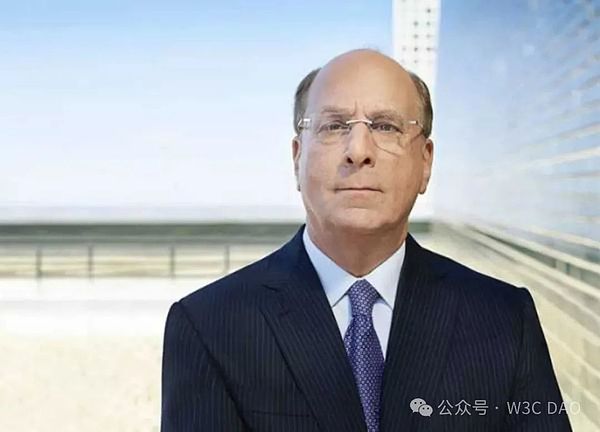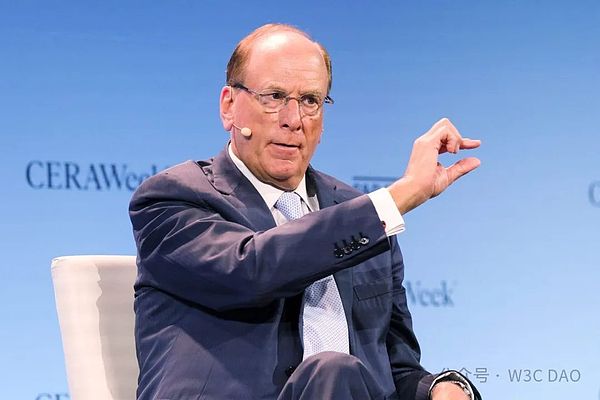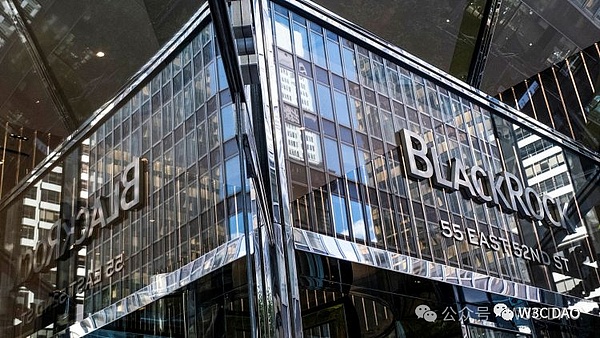Author: W3C DAO
According to Cointelegraph, BlackRock CEO Larry Fink expects the Bitcoin price could rise to $50,000 to $70,000.
"If you are afraid or worried about currency devaluation, you can view Bitcoin as a huge potential long-term store of value. It's like digital gold."
He also stated, "Bitcoin is a ledger, but it is an international, cross-border ledger. It is more powerful than any country. The emergence of Bitcoin ETF is an example of how we are legalizing this asset class."
In addition, BlackRock's Digital Assets Head Robert Mitchnick emphasized in a CNBC Squawk Box interview that Bitcoin is not a high-risk asset, but a token that is "global, scarce, non-sovereign, and decentralized".
Mitchnick pointed out that some research and commentary in the industry portrays Bitcoin as a risk asset, leading to self-fulfilling market volatility. He believes the impact of a US economic recession on Bitcoin is exaggerated and could even be a catalyst. Moreover, he stated that despite macroeconomic uncertainty, Bitcoin has risen about 15% since last November, and called 2024 a "historically significant year" where its long-term trend makes it "digital gold".
BTC Loyal Fan
Larry Fink, CEO of the world's largest asset management company BlackRock, is a loyal supporter of Bitcoin (BTC).
Although he turned to Bitcoin (BTC) relatively late, he has now become one of Bitcoin's most influential advocates.

In previous years, the US Securities and Exchange Commission has been hesitant to approve spot Bitcoin ETFs, partly due to concerns about market maturity and manipulation. (The US has Bitcoin futures ETFs, but spot ETFs would allow investors to access Bitcoin more directly).
BlackRock, one of Wall Street's leading financial institutions, has made efforts to legalize it and indicated that the market might demand such products. Subsequently, other traditional financial institutions like Fidelity, Franklin Templeton, VanEck, and many crypto newcomers such as Bitwise and Hashdex have followed suit and begun applying to list their own Bitcoin ETFs.

Bitcoin ETFs are important because they allow more institutions to gain Bitcoin exposure by holding stocks like BlackRock's iShares or WisdomTree's BTCW, rather than directly holding Bitcoin. This means retail and institutional investors can invest in Bitcoin through index funds.
Fink's Perspective
Fink told Fox Business that BlackRock's clients show strong interest in cryptocurrencies, and BlackRock's products in the asset class are more "democratized".
Fink also stated that Bitcoin, as an open, verifiable, and stateless currency, might become an increasingly important financial tool.

Fink's transformation is noteworthy, as many in traditional finance are currently re-examining blockchain, especially the "tokenization" of real-world assets like stocks and bonds.
In Conclusion
The future is digital, and the integration of traditional finance with blockchain is opening a new chapter. Bitcoin is gradually being viewed as a global store of value and a powerful financial tool. With the gradual legalization of Bitcoin ETFs, many institutional and individual investors will be able to more easily participate in the cryptocurrency market, which not only marks Bitcoin's maturity but also drives the popularization of the entire crypto ecosystem.
BlackRock CEO Larry Fink's transformation fully illustrates that traditional financial giants are re-examining cryptocurrency's potential. From worry to support, this change reflects not only market demand but also the undeniable importance of cryptocurrencies in the future financial system.
As blockchain technology's application continues to expand, tokenization of real-world assets like stocks and bonds is becoming possible. Looking forward, we might see a more open, transparent, and borderless financial world where individuals and institutions can benefit. This is not just a technological innovation, but a deep integration of traditional and modern finance. Let us look forward to this transformation and the broader possibilities it brings to the human economic system.








